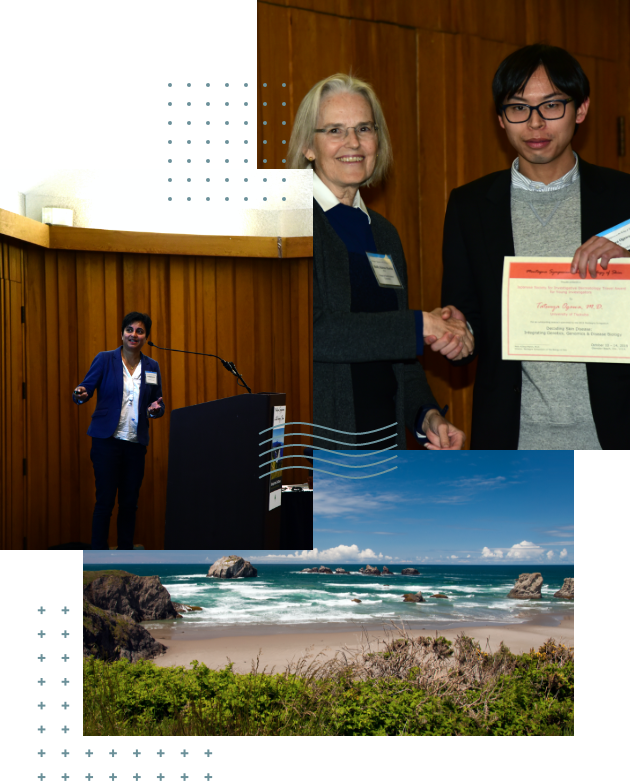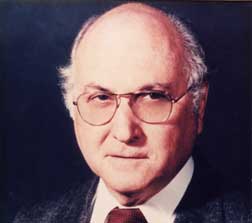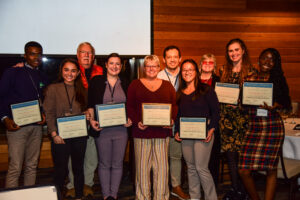Deadline for Submission: August 1, 2025
Submit an Abstract and Apply for Travel Awards
Abstracts:
A limited number of posters selected from submitted abstracts will be accepted for presentation at the meeting, and submissions for short oral presentations will be selected from abstracts to create the final program of meeting speakers.
Abstract Guidelines
- Do not exceed 200 words.
- Include all authors’ full names and their institutions.
- Briefly summarize the study’s background, purpose, results, and conclusions, in that order and without headings.
- Each applicant must submit an application form, even if they are co-authors on the same abstract.
- Write with a general scientific audience in mind, and avoid nonstandard abbreviations, acknowledgments of support, footnotes, or references.
- Indicate if you or another author would like to be considered for a travel award (details below).
- Submit abstract as an upload by using the button above.
Travel Awards:
Society for Investigative Dermatology (SID) Farber Award: Please confirm that you are currently in training (student, postdoc, resident, fellow) OR that you received a doctoral degree no more than 7 years ago and are not PI of NIH R01 or equivalent research funding.
Japanese Society for Investigative Dermatology (JSID) Award: Member of JSID and younger than 40 years of age.
Taiwanese Society for Investigative Dermatology (TSID) Award: Member of the TSID.
Molly Kulesz-Martin Director’s Award: Please apply using the abstract form and send an email with a brief summary of your goals for attending the conference and how this award will enable you to meet those goals to stoos@ohsu.edu.
Farber Award
The Farber Travel Awards honor the legacy of Eugene M. Farber, M.D. by supporting the efforts of young researchers. The Montagna Symposium on the Biology of Skin, in cooperation with the Society for Investigative Dermatology, provides travel awards for young investigators to attend the Symposium and present their work. Applicants should be currently in training (student, postdoc, resident, fellow) OR received a doctoral degree no more than 7 years ago and not PI of NIH R01 or equivalent research funding.
The award pays up to $1,600 per award for the hotel (estimated $1,100 for all four nights lodging) and $500 towards flights in order for the awardee to attend the Montagna Symposium. Additionally, conference registration fee is waived for award recipients (you will receive a discount code if selected). This registration fee covers all meals during the Symposium except for dinner on Thursday and lunch on Saturday (free time). Reimbursement is made after the meeting.
JSID Award
Beginning in 2013, the Japanese Society for Investigative Dermatology has offered two travel awards to JSID members younger than 40 years of age. This annual award (of up to 200,000 yen to cover travel and accommodation) aims to encourage the developing careers of young researchers through their attendance and presentation of their work at the Montagna Symposium, encouraging them to build interactive, collaborative relationships with established physicians and scientists worldwide. Additionally, conference registration fee is waived for award recipients (you will receive a discount code if selected).
Taiwanese Society for Investigative Dermatology (TSID) Award
The Taiwanese Society for Investigative Dermatology is excited to offer a travel award for young investigators to attend the Montagna Symposium. This travel award encourages members to further the core value and mission of TSID, which is the advancement of investigative dermatology and cutaneous biology. Please contact the TSID for details.
Molly Kulesz-Martin Director’s Award
The Molly Kulesz-Martin Directors Award aims to increase participation of talented individuals. Recipients of this award will be reimbursed for the cost of travel and lodging (up to $1,600 USD) and registration will be waived. This registration fee covers all meals during the Symposium except for dinner on Thursday and lunch on Saturday (free time). Reimbursement is made after the meeting.
Please apply using the abstract form and send an email with a brief summary of your goals for attending the conference and how this award will enable you to meet those goals to stoos@ohsu.edu.
For any questions, email Elizabeth Stoos (stoos@ohsu.edu).
Applications will be reviewed by the Montagna Program Directors and you will be informed by August 12th if you received the travel award or not.

Accommodations:
Scientists who demonstrate financial need are offered financial assistance for meeting attendance as needed and as funds are available, such as a waiver of registration fee or receipt of the Director’s travel award. Venues are ADA compliant. The venue also can offer childcare to those in need. Room sharing opportunities may be available to reduce the cost of lodging.
 Eugene M. Farber, M.D. dedicated his life to medicine and to dermatology in particular. He served for 36 years as Professor and Chairman of the Department of Dermatology at Stanford University School of Medicine and President of the Psoriasis Research Institute of Palo Alto. Dr. Farber began his career with a A.B. from Oberlin College. He received his M.D. degree from the University of Buffalo in 1943, and his residency training from the Mayo Clinic.His lifelong passion was to better understand and improve the treatment of skin diseases. He lectured in many countries, received honorary memberships and awards from dermatological societies worldwide, authored 225 publications, and received the award of Master In Dermatology from the American Academy of Dermatology. He collaborated in clinical studies demonstrating the effectiveness of the first antihistamine, Benadryl. He also worked with skin biologists and clinicians around the world to establish the International Symposium on Psoriasis at Stanford in 1971, as well as one of the first hospital-based psoriasis day care centers.
Eugene M. Farber, M.D. dedicated his life to medicine and to dermatology in particular. He served for 36 years as Professor and Chairman of the Department of Dermatology at Stanford University School of Medicine and President of the Psoriasis Research Institute of Palo Alto. Dr. Farber began his career with a A.B. from Oberlin College. He received his M.D. degree from the University of Buffalo in 1943, and his residency training from the Mayo Clinic.His lifelong passion was to better understand and improve the treatment of skin diseases. He lectured in many countries, received honorary memberships and awards from dermatological societies worldwide, authored 225 publications, and received the award of Master In Dermatology from the American Academy of Dermatology. He collaborated in clinical studies demonstrating the effectiveness of the first antihistamine, Benadryl. He also worked with skin biologists and clinicians around the world to establish the International Symposium on Psoriasis at Stanford in 1971, as well as one of the first hospital-based psoriasis day care centers.
From the beginning, Dr. Farber combined clinical observation with laboratory research. He demonstrated that investigative laboratory studies could expand clinical knowledge and improve clinical treatments. He was particularly known for his using his insightful research to improve the clinical treatment of psoriasis. Dr. Farber was also admired for his ability to teach not only the science but also the art of dermatology.
Dr. Farber was a leader of dermatology. He was on the Board of Directors of the American Academy of Dermatology, the American Dermatological Association, the Association of Professors of Dermatology, the Pacific Dermatological Association, and the Society for Investigative Dermatology. He also held several editorial positions, and he served as President of the Association of Professors of Dermatology, the Pacific Dermatology Association, the Society for Investigative Dermatology, and the Psoriasis Research Institute.
Dr. Farber was a devoted family man; he was married for 56 years and raised four children and two grandchildren.
Past Awards
In 2016, the National Psoriasis Foundation provided two travel grants to NPF members to attend the Montagna Symposium.
In 2017, the Epidermolysis Bullosa Medical Research Foundation provided two travel awards to young investigators to attend the Montagna Symposium and present a poster on an EB topic.
